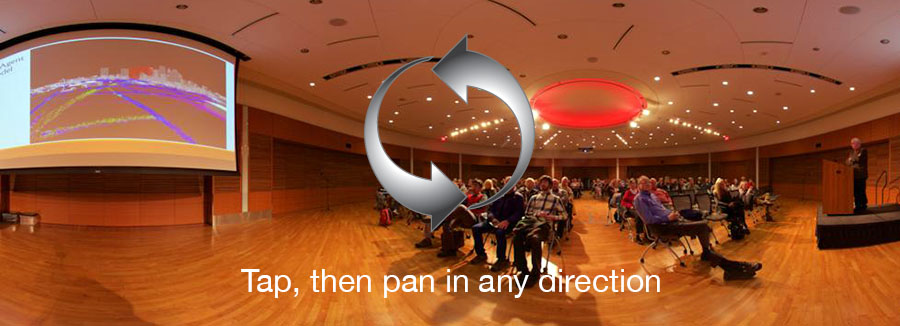Indeed, 43% of smartphone owners say turn-by-turn navigation is the only transit-related function they use on their phone at least occasionally, according to new analysis of the data. Some 16% say they never use their mobile device for this purpose.
Turn-by-turn navigation is a popular feature among a wide range of smartphone owners, but younger adults are especially avid users. Some 80% of 18- to 29-year-old smartphone owners use their phone for real-time directions while at the wheel at least occasionally, and just 7% indicate that they never do so. Older adults are substantially less likely to use their phone for this purpose, but even so, more than one-third of smartphone owners ages 65 and older do so at least occasionally. College-educated and more-affluent smartphone owners are also especially likely to use their phones for navigation while driving. These groups are also more likely to own a smartphone.
Monthly Archives: April 2015
à bientôt Flack & Krackauer: Josh Epstein Lecture @WID
I’ve long enjoyed interesting lectures.
The John Von Neumann public lectures [1] in complexity and computation, held for the past three years at the nearby Wisconsin Institute for Discovery (WID), offers a rather fertile menu.
Josh Epstein’s [2] talked last evening on the Frontiers of Computational Social Science: From Neurons to Nations.
I managed to take a few photos and one panoramic image. I thought it time to archive an event given the imminent departure of WID’s director David Krakauer [3] and C4 co-director Jessica Flack [4].
Godspeed as they return to Santa Fe.
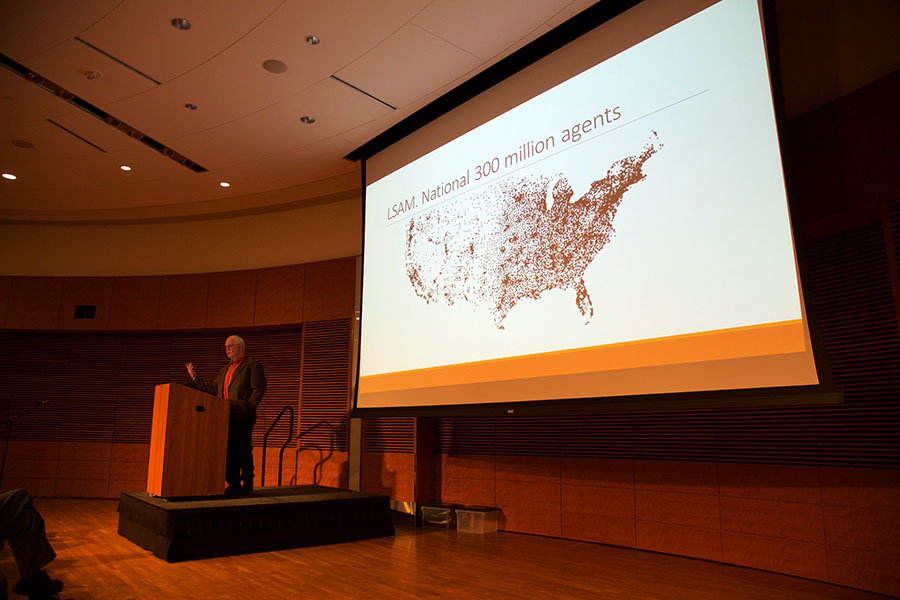
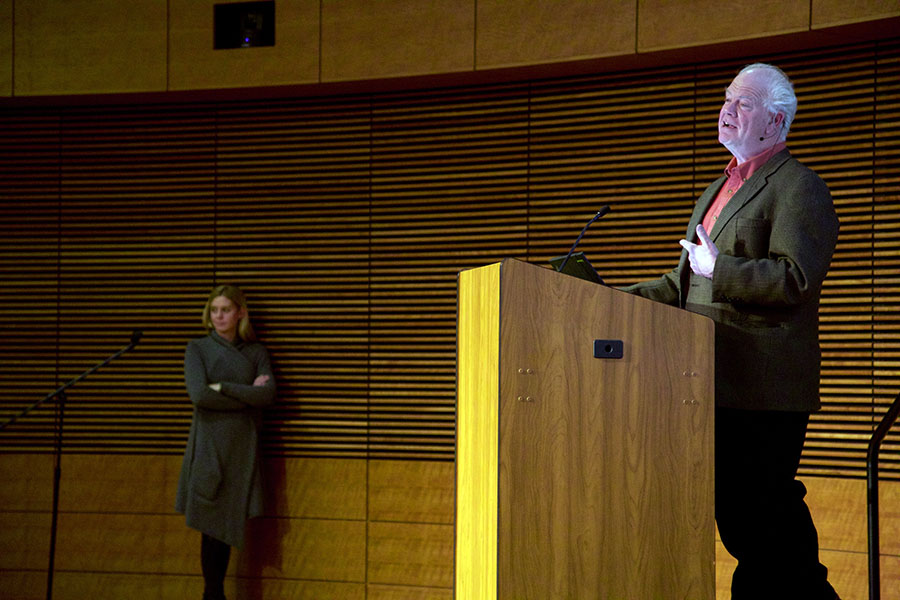

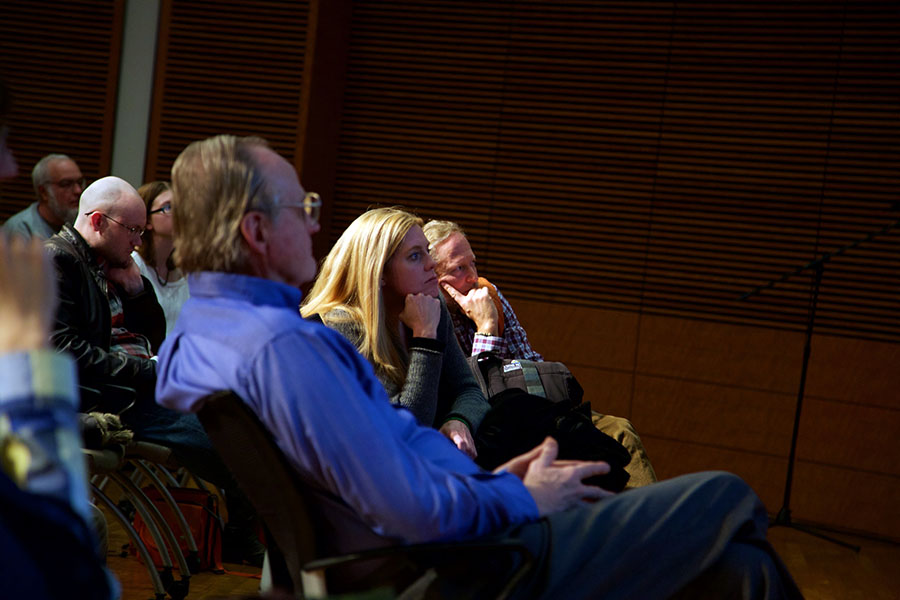
[1] John Von Neumann lecture archives.
[2] Josh Epstein bio.
[3] David Krakauer
[4] Jessica Flack
Weighing Privacy Vs. Rewards Of Letting Insurers Track Your Fitness
Would you be willing to hand over your health information to a life insurance company, in exchange for financial rewards?
Activity trackers have become increasingly popular over the past few years, tracking everything from how many steps you walk, to your location throughout the day.
Now, John Hancock, a U.S.-based insurer, hopes that fit and active people will exchange activity data for lower life insurance premiums and other perks. Those who sign up for this optional program, the first of its kind in the United States, will receive a free Fitbit device to track their activity levels.
This program, announced Wednesday, may seem like a win-win: Insurers can sell their product to a new market of gadget-loving millennials and in return, healthy consumers can access steep discounts.
The End of Asymmetric Information
By Alex Tabarrok and Tyler Cowen:
Might the age of asymmetric information – for better or worse – be over? Market institutions are rapidly evolving to a situation where very often the buyer and the seller have roughly equal knowledge. Technological developments are giving everyone who wants it access to the very best information when it comes to product quality, worker performance, matches to friends and partners, and the nature of financial transactions, among many other areas.
These developments will have implications for how markets work, how much consumers benefit, and also economic policy and the law. As we will see, there may be some problematic sides to these new arrangements, specifically when it comes to privacy. Still, a large amount of economic regulation seems directed at a set of problems which, in large part, no longer exist.
Pregame Madison Photos
Pregame State Street Scenes



Easter -1, A Minor Miracle
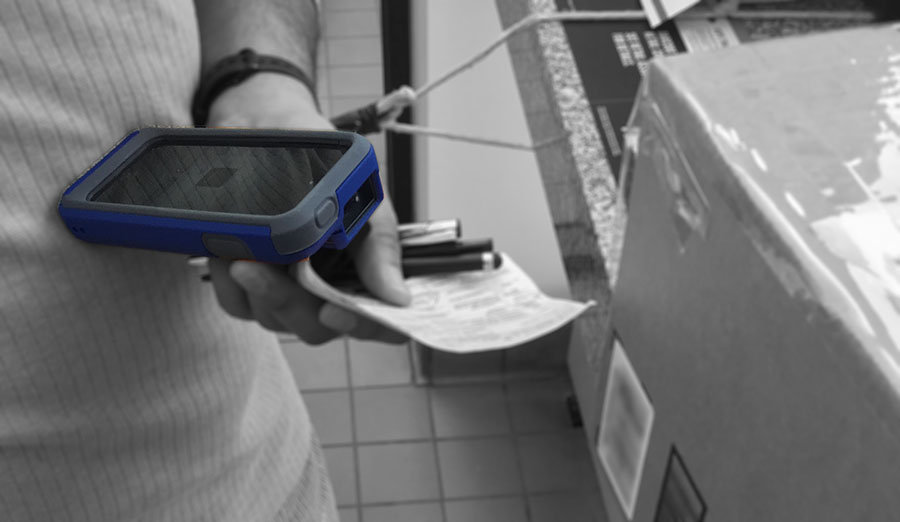
Economist audio edition at the ready.
Newsreader updated.
I was ready for the post office queue. Two prepaid boxes. Just a drop off away.
Suddenly, a kind Post Office employee asked if I was just dropping off? Yes. He sported an iPhone, scanned my boxes, printed a receipt and I was out the door.
A minor miracle, one day before Easter.
